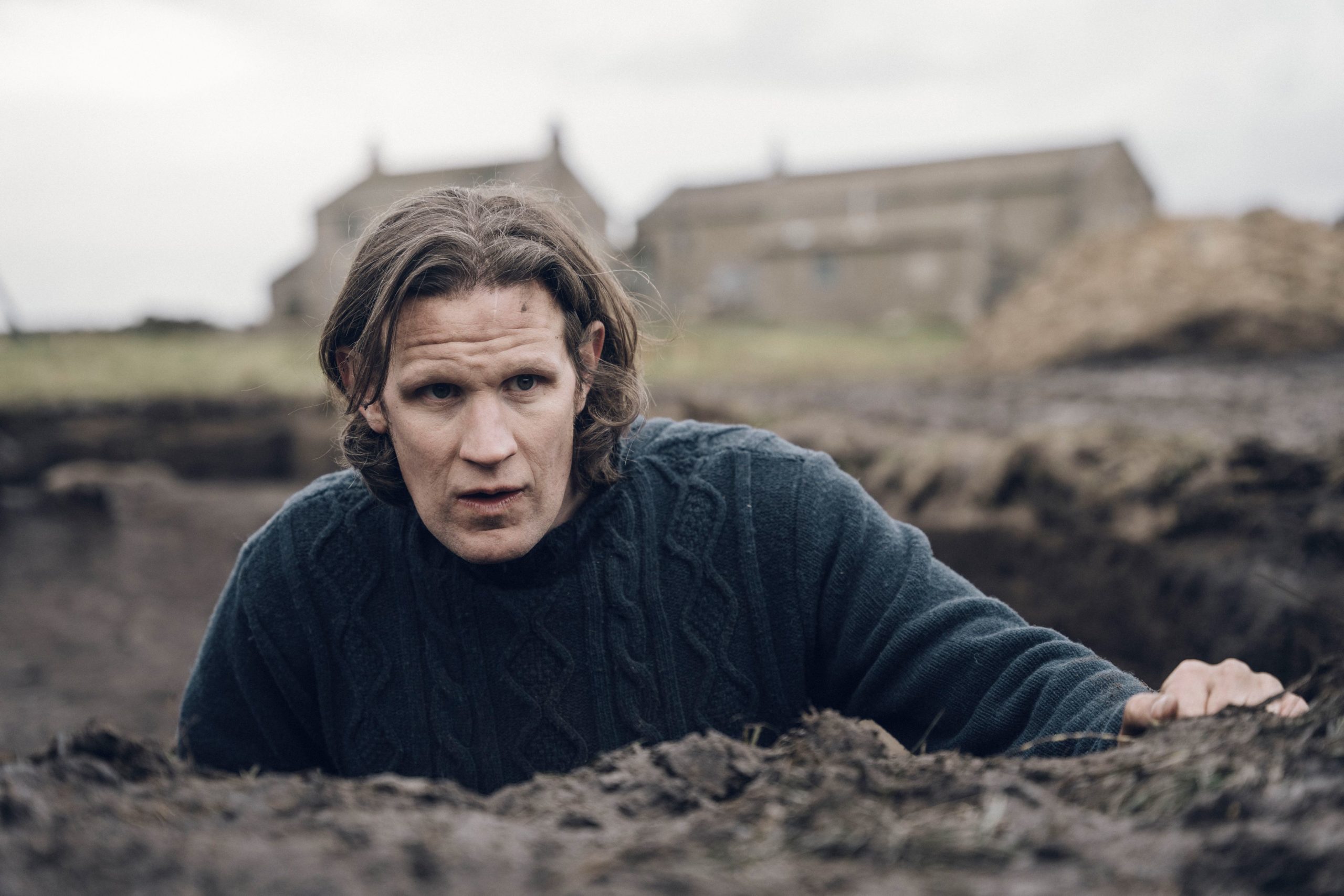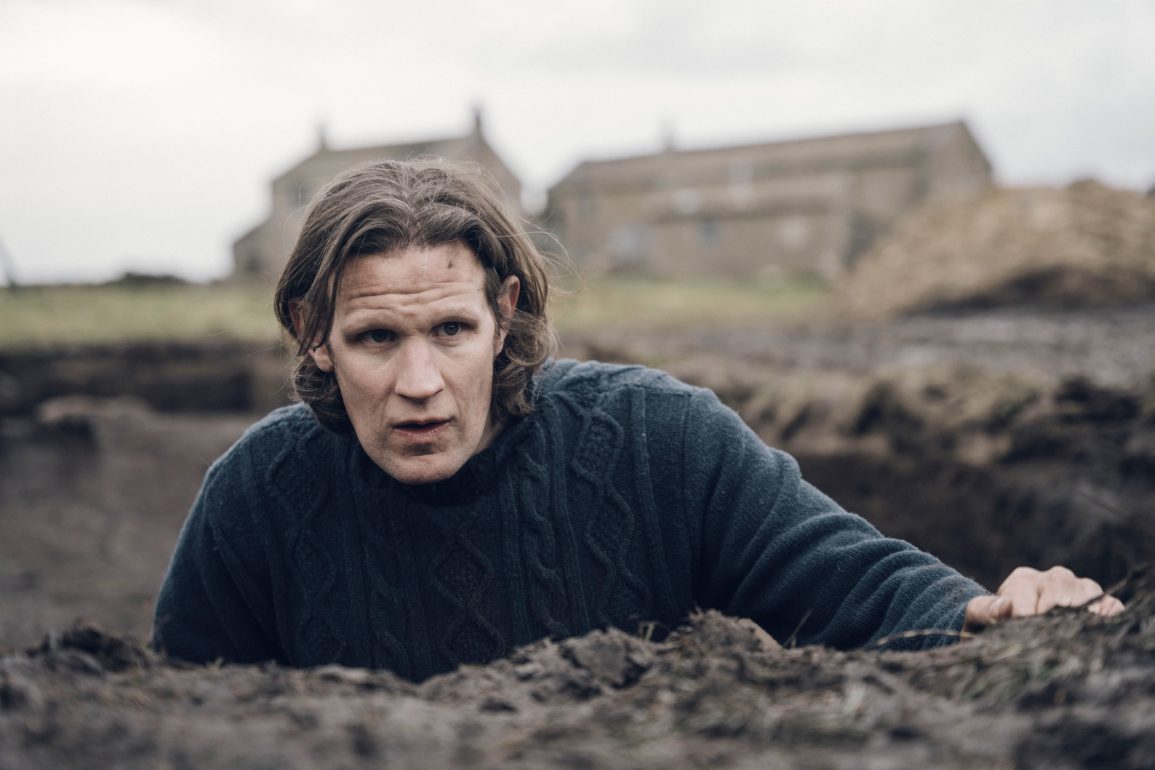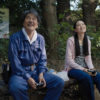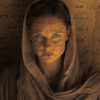Folk horror is in somewhat of a renaissance. The immense popularity of American films The Witch and Midsommar in the last decade have brought it back into the public eye, but it was in Britain that it first appeared there in the late 1960s. The iconic trifecta of Witchfinder General, The Blood on Satan’s Claw, and The Wicker Man pioneered the genre and have been repeatedly emulated since – Midsommar itself borrows heavily from The Wicker Man. Last year, English filmmakers Alex Garland and Mark Jenkin have tried their hand at capitalising upon the genre’s renewed interest with Men and Enys Men, respectively. Now, with his second feature, it’s Daniel Kokotajlo’s turn – and the results are far from perfect.
Starve Acre is a story of a couple who move to a rural village in Yorkshire with their young son, who quickly begins to exhibit strange behaviour. Matt Smith plays the father, Richard, an archaeologist with an exaggerated Yorkshire accent. Smith has seemingly struggled to find good roles in film, with his best performances coming in television shows Doctor Who, The Crown, and House of the Dragon. His Starve Acre performance is adequate enough for the character, but he can’t disguise the dull screenplay, even as his character becomes the emotional crux of the film. Smith’s role is certainly the meatiest, but this isn’t saying much when compared to his co-star Morfydd Clark, who plays the mother, Juliette. Her overly muted performance is more indicative of what little she is really given to do rather than any kind of indictment of her as an actress – we know she’s capable of great horror acting, as demonstrated through her breakout performance in Saint Maud. The most notable aspect of her character is a lack of Yorkshire accent – perhaps an attempt to show that she is an outsider to the setting, but this is the furthest this idea goes. Her minimal characterisation starts and ends with her role as a mother.
Daniel Kokotajlo’s direction is without flair but competent, particularly in the rare character-driven moments, drawing upon his previous experience with drama. The shift from drama to horror, though, is largely unsuccessful, generating few scares and a weakly eerie atmosphere. This is largely an issue with writing that struggles to translate Andrew Michael Hurley’s book to the screen. The bleak atmosphere of the original story is reduced to a plot so clearly signposted that it evokes more of a feeling of walking a tourist-intended trail through the Yorkshire Dales than it does its supposed mystery. Starve Acre, as so many modern folk horrors do, has story beats which are clearly inspired by those ‘60s and ‘70s classics, as well as some more haunted house type horrors – it would not surprise me if Kokotajlo is a fan of Joko Anwar’s Satan’s Slaves. Its homages largely result in a reminder of the better films you could be watching, as it ends up rushing to an unsatisfying conclusion that fails to compare to the cult aspects of those tales.
There are glimpses of what could have worked – the importance of Richard’s father and his book is understated, and feels like something that could have been explored further. The amount of time spent with Juliette’s sister, Harrie (Erin Richards), versus what we actually learn about the relationship characters feels inconsequential. The relationships seem like they are supposed to be the key to the film – Richard and Juliette, Juliette and Harrie, Richard and his father – but there is little to take from any of them. There are hints at something that would appear if it was dug a little deeper – perhaps appropriate for a film with an archaeologist as a protagonist. The more straight-up-horror aspects, particularly those involving the skeleton, work to some extent, but again, it feels like there is more there to be discovered.
Starve Acre, then, may seem appropriately brief, but perhaps it could have benefited from a longer runtime – time to build more of an atmosphere and time to explore these relationships that would have allowed for emotional success. Instead, its 98 minutes are almost instantly forgettable.
There is still some fun to be had with it, and, although it won’t be entering the folk horror pantheon any time soon, if you are a folk horror fan, you’ll likely gain some enjoyment from it – as will Matt Smith fans. If you’re not already a fan of one or the other, though, it’s not going to convert you.









